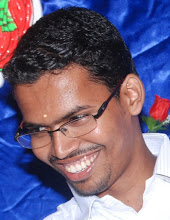 |
| Image Source : Skyscrappercity.com |
:: Chennai Factoids::
:: Name reasons behind famous roads in Chennai ::
:: WALLAJAH ROAD - CHEPAUK ::
Am sure everyone of us knows about this Wallajah Road. It is in Chepauk near to M.A.Chidhambaram Stadium . Wallajah Road itself is a landmark for this place Chepauk. This is the road which takes us to Beach (Anna Square) from Mount Road. It is named after Mohamed Ali Khan Wallajah - Nawab of Arcot.
:: Mohamed Ali Khan Wallajah ::
Mohamed Ali Khan Wallajah- son of Muhammad Anwaruddin was born in 1717, became the Eighth Nawab of Arcot and he was the Governor of Trichinopoly. In 1750 he was defeated and forced to fly to Arcot. In 1751 Robert Clive, the British Administrator and Military Leader captured Arcot in the battle against the British and theFrench. He was born in Shropshire, England.
He was the person who joined British East India Company in 1743. In 1754, the battle between the British and the French ended with a treaty by which Mohamed Ali Khan Wallajah left as the Nawab of the Carnatic.
In 1765, he became Independent ruler of the Carnatic. The Treaty of Paris of 1763 also recognized him as the Nawab and friend of the King of England. The first sovereign ruler of the Carnatic was Muhammad Ali Wallajah. In 1770, to the Court of the Nawab Wallajah admiral Sir John Lindsay arrived as the King'sMinister. Governor Dupleix strongly objected to such credit of the Nawab. By the king of England, Wallajah was asked twice to undergo the ceremony of his enthronement with the badge of the order of the Bath, firstthrough Lindsay in 1771 and in 1779 through Sir Hector Munro, which he did in his residence at Chepauk Palace. He supported in the establishment of the BritishEmpire in South India against French.
In London, Robert Clive (Lord Clive) spoke about the great qualities of the Nawab and tribute to his ruling. When the British Ship “H.M.S Wester” reached the Madras Fort, the captain of the ship gave a letter from the King of the England saying that his friendship with the Nawab should grow from generation to generation. He was the friend and admirer of the British East India Company. During the Second Anglo-Mysore War (1780-84), the Nawab divested his administrative independence by the British. After the War he got his powers and during the third Anglo¬-Mysore War (1790-92), his powers were taken away by British.
Muhammad Ali Wallajah is the Nawab who donated land for many temples which are still there till date. Near Trichy, Sri Padmanabha Swamy temple in Srirangam was a gift of the Nawab with a large estate, which is called “Nawab Thottam” even today. Likewise he donated lands for Hindu temples in Tirupati, Tiruvarur, Tirunelveli andMadras. Similarly, he built Mosques in South India. The Wallajah Big Mosque situated in Triplicane High Road, Chennai is one of the biggest mosques in South India. This is the only Mosque in the whole world which has chronogram written by a non-Muslim (his Private Secretary Raja Makhan Lal Khirat). In Arabia, in the Hijaz at Makkah, he had his permanent staff to serve the poor. He furnished a ladder which is covered with gold and silver at Makkah to enable the journeyers to get into the territory of the Kaaba during the Haj. To the Prophet's Mosque in Madinah (Masjid-e-Nabavi) he supplied carpets and lights. The Syeds, who were the descendents of the Holy Prophet, he used to donate Rs. 12000 (in 18th century rupees) every year.
"Safinathullah" and "Safinathun Nabi" are thetwo ships which Wallajah purchased for trade and commerce, but they were mainly used for Haj Pilgrims transportation from Carnatic. For the benefit of the pilgrims of the Makkah and Madinah, Wallajah built rooms which are known as "Arcot Rubats" in Arabia.
The famous Chepauk Palace, built by Mohamed Ali Khan Wallajah in 1768, is located in the area of 121 acres from the Cooum river to Pycroft’s road. This palace has two blocks; the southern block called 'Kalas Mahal' is in two floors which were a school named Madrasa-e-Aalia and the northern block called 'Humayun Mahal', which contained the Diwan Khana, (the land of which now accommodates the PWD Offices, Board of Revenue, Senate House, Madras University, State Guest House and M.A.C. Stadium). Moulana Abdul Ali Bahrululoom from Lucknow was the first Principal of the Madrasa (who is buried in Wallajah Big Mosque, Triplicane). On the site of the Carnatic Nawabs artillery park from where volleys were fined to greet visiting VIPs, Senate house was built.
Nawab Muhammad Ali Wallajah’s bathing marquee afterwards became the residence of Governor Robert Clive, Wellesley and later the residence of Surgeon-General. In 1930 this building was demolished and the Madras University Library and the Department of Research came up in its place.Till it was demolished, the University of Madras housed the offices of the Tamil Lexicon and the Department of Indian History and Archaeology.
At the age of seventy eight, Nawab Wallajah died in 1795, after a glorious reign of forty-six years. The road which leads from Triplicane to the Palace is still known as Wallajah road. He was buried at Santhome, Madras, but his remains were moved to Trichinopoly, with full honors after two yearsand buried at the feet of holy saint Hazrath Tabray Alam according to his wish
Source : hoparoundindia.com
 |
| Locate Yourself : Wallajah Road - Chepauk (Source : Google Maps) |
Landmarks in and around Wallajah Road :
- MAC Stadium
- Tamil Nadu Tourism Complex
- Kalaivaanar Arangam (Which has been demolished now)
- Hotel Priyadharshini Park
- Apple Residency
- Various Sports Shops
- ABN Infotech
- Senate House of Madras University




























